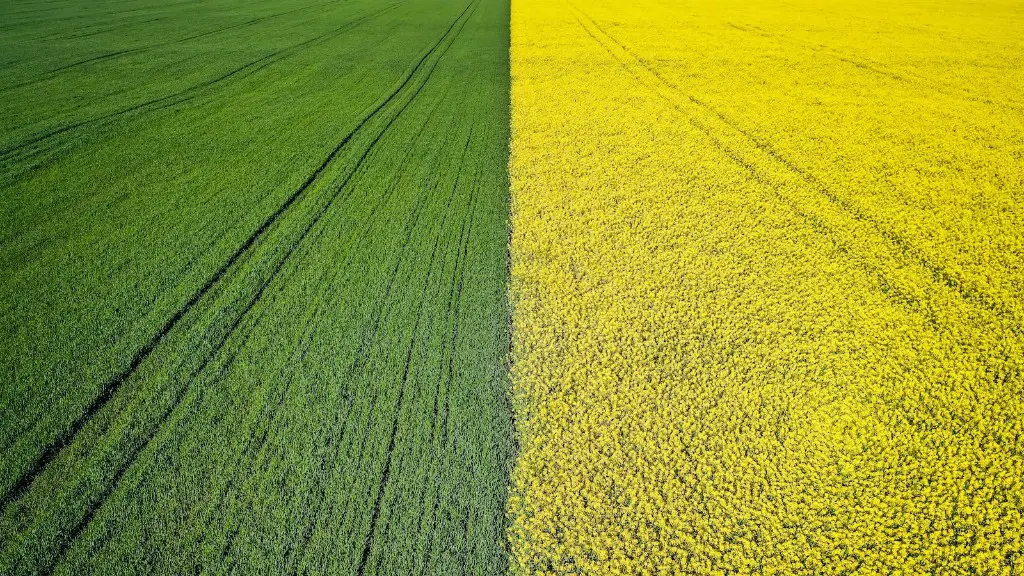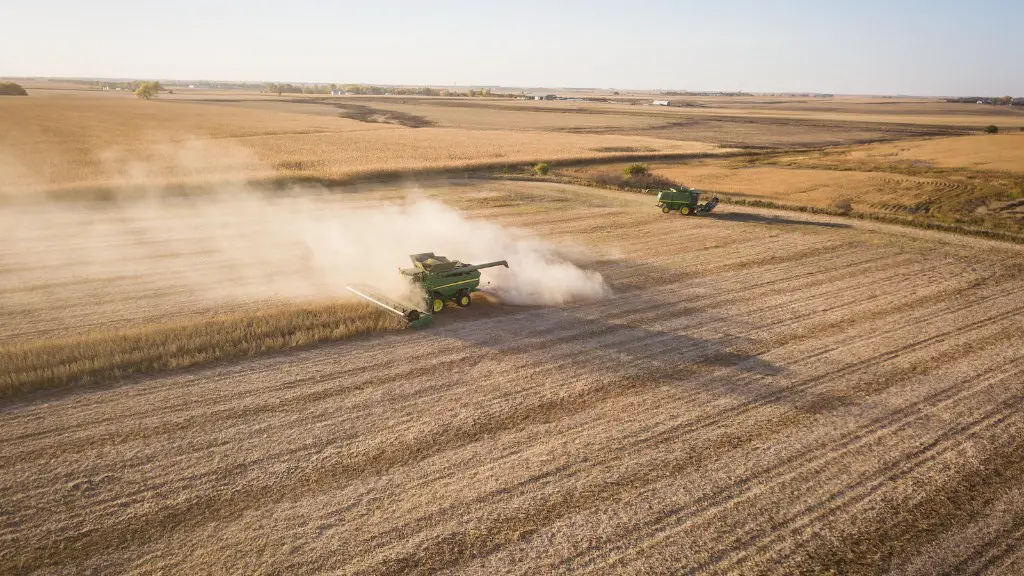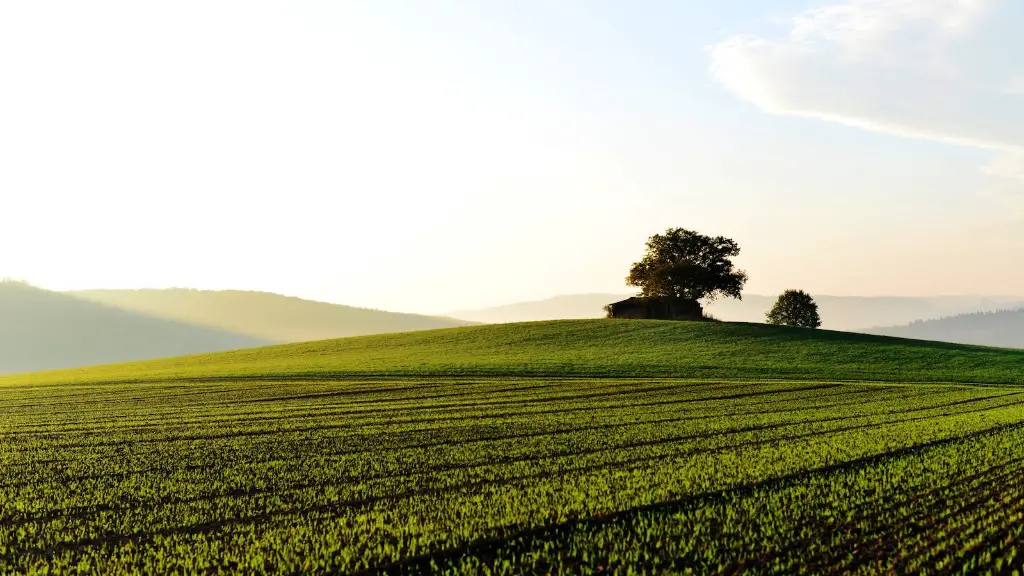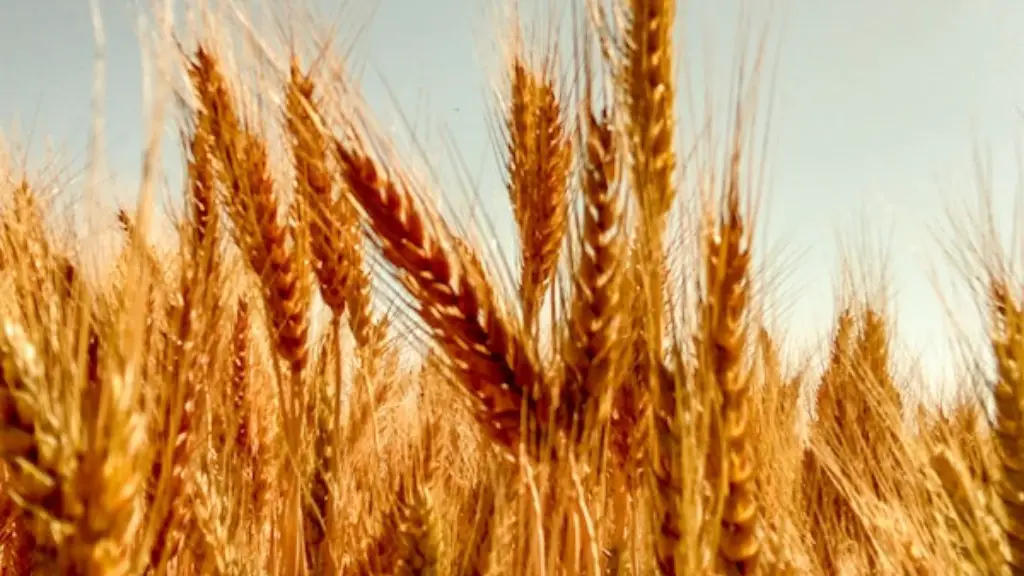One of the most important developments in human history was the transition from a hunter-gatherer lifestyle to one based on agriculture. This change had a profound impact on society, affecting everything from the way people lived and worked to the way they thought about themselves and their place in the world.
The invention of agriculture allowed people to settle in one place and develop civilizations. This led to advances in technology, science, and art, as well as the rise of cities and empires. Agriculture also allowed for the growth of food surpluses, which allowed people to specialization in other pursuits.
The rise of agriculture changed human society in a number of ways, many of which are still evident in the world today.
The advent of agriculture changed the course of human history, ushering in an era of settled societies and leading to the domestication of plants and animals. Agriculture allowed for the growth of civilizations and the rise of cities. It also allowed for the growth of food surpluses, which allowed for the development of trade and commerce.
What was the impact of agriculture on humans?
Agriculture has been the foundation of human civilization for millennia. Out of agriculture, cities and civilizations grew, and because crops and animals could now be farmed to meet demand, the global population rocketed—from some five million people 10,000 years ago, to more than seven billion today.
While the agricultural revolution was a pivotal moment in human history, it has also had a profound impact on the environment. The clearing of land for farming has led to deforestation and the loss of habitat for many species, and the use of pesticides and fertilizers has polluted air, water and soil. In recent years, there has been a growing recognition of the need to find more sustainable ways of producing food, and many farmers are now using more environmentally-friendly practices.
Looking to the future, it is clear that agriculture will continue to play a vital role in human society. With the world population expected to reach nine billion by 2050, we will need to produce more food than ever before. And with climate change threatening the stability of global food supplies, it is more important than ever that we find ways to produce food sustainably.
When early humans began farming, they were able to produce enough food that they no longer had to migrate to their food source. This meant they could build permanent structures, and develop villages, towns, and eventually even cities. Closely connected to the rise of settled societies was an increase in population.
Why is agriculture important to human society
Agriculture is the main source of food and fabrics for the world. Products like cotton, wool, and leather come from agricultural sources. Additionally, agriculture provides wood for construction and paper products. The methods used in agriculture vary depending on the part of the world being considered.
While the development of agriculture in a region positively affects the natural life, oxygen production and climate in the region, inorganic nitrate pollution, pesticide pollution and salinity problems can be listed as the negative effects of agriculture on the environment, especially in regions where intensive agriculture is practised. In order to minimise the negative effects of agriculture on the environment, measures such as using organic fertilisers, using pest resistant crops, crop rotation and irrigation management need to be adopted.
Was the development of agriculture good for humans?
The Agricultural Revolution was a period of great change for humans. People, who had been hunters and gatherers before, were starting to become farmers. Farming allowed people to produce more food than they could actually eat. The extra food provided by agriculture meant that some people did not have to spend their time gathering food. This led to the development of civilizations and the rise of cities.
Agriculture is one of the leading causes of environmental degradation. It contributes to climate change, deforestation, biodiversity loss, dead zones, genetic engineering, irrigation problems, pollutants, soil degradation, and waste. All of these problems result in environmental degradation, which leads to a decline in the quality of the environment.
What is an advantage of agriculture to humans?
Agricultural products are the source of raw materials for many industries. These products are necessary for human survival, as they provide food, shelter, and clothing. Without agriculture, many industries would not be able to survive.
Agriculture can both positively and negatively impact the environment. On the positive side, agriculture can trap greenhouse gases within crops and soils, or mitigate flood risks through the adoption of certain farming practices. However, agriculture can also lead to pollution and degradation of soil, water, and air.
What were the 3 major results of the agricultural revolution
The Agricultural Revolution was a period of significant agricultural development that took place in Europe in the 18th and 19th centuries. It preceded the Industrial Revolution and is often considered one of its causes. The Agricultural Revolution was linked to such new agricultural practices as crop rotation, selective breeding, and more productive use of arable land. These innovations helped to increase crop yields and allowed for the intensification of agriculture. They also had a profound impact on the social and economic fabric of European society, contributing to the rise of the middle class and facilitating the growth of cities and industry.
The growth of the agricultural sector has a direct and immediate impact on the overall employment in the rural areas. This is due to the fact that the agricultural sector is the largest employer of rural labor force. The growth of the agricultural sector leads to an increased demand for labor in a variety of non-tradable activities, such as construction, transportation, and storage. This, in turn, leads to an increase in the employment of rural labor in these sectors.
What are the 5 effects of agriculture?
The environmental effects of agriculture are far-reaching and complex. Agriculture is a major contributor to soil fertility loss, eutrophication of water bodies, deforestation, and climate change. Pesticide pollution is also a serious environmental concern associated with agriculture.
The Agricultural Revolution was a time of experimentation with new crops and new methods of crop rotation. These new farming techniques gave soil time to replenish nutrients, leading to stronger crops and better agricultural output. Advancements in irrigation and drainage further increased productivity.
Why was the Agricultural Revolution significant in human history
The Agricultural Revolution was a pivotal moment in human history, marking a major turning point in the way we live our lives. The ability to cultivate our own food sources allowed us to settle down in one area and made life much more manageable. This, in turn, led to the growth of human society in terms of culture, technology, and more. Without the Agricultural Revolution, we would not be the modern humans we are today.
Humans have made big changes since they learned how to grow crops and tame animals for food. They can now produce a more constant food supply, which has allowed the population to grow more quickly. Nomads have given up their ways of life and have started living in settled communities.
Who did the Agricultural Revolution impact the most?
The Agricultural Revolution was a period of agrarian change that took place in Britain in the 18th and early 19th centuries. During this time, new technologies and farming practices were introduced which resulted in a significant increase in agricultural productivity and output. This in turn led to higher wages and improved standards of living for the British people.
There are quite a few benefits to urban farming, including lower greenhouse gas emissions, minimal transportation requirements, and reduced energy use for food production. As the benefits are becoming more and more acknowledged, the trend of urban farming is starting to become quite popular.
Final Words
The Agricultural Revolution led to a large increase in population and to the establishment of cities and civilizations. Agriculture allowed for the domestication of plants and animals, which led to the development of civilizations. Agriculture changing human society.
The answer to this question is complex, as agriculture has changed human society in a variety of ways. Overall, however, it is clear that agriculture has had a profound impact on the development of civilization. Agriculture has allowed humans to settle in one place and create permanent settlements. This, in turn, has led to the development of complex social structures, advances in technology, and the rise of civilizations.





